To accompany your Come Follow Me study for May 1-7
In addition to reading the indicated chapters, you may wish to:
Read the applicable portions of the New Testament Institute Student Manual at
- Chapter 17: Luke 9–14 (churchofjesuschrist.org)
- Chapter 18: Luke 15–17 (churchofjesuschrist.org)
- Chapter 25: John 11–13 (churchofjesuschrist.org)
Watch the following related video segments:
- Come Follow Me (May 1-7) Luke 12-17; John 11 | The Prodigal Son at (2) Come Follow Me (May 1-7) Luke 12-17; John 11 | The Prodigal Son – YouTube
- Seek Ye the Kingdom of God at Seek Ye the Kingdom of God – YouTube
- Jesus Declares the Parable of the Lost Sheep at Jesus Declares the Parable of the Lost Sheep | Luke 15:2–7 | Bible Videos – YouTube
- The Prodigal Son at Parables of Jesus: The Prodigal Son – YouTube
- Lazarus Is Raised from the Dead at Lazarus Is Raised from the Dead – YouTube
- The Gospel of Luke (from minute 2:06:00-2:47:48) at https://www.youtube.com/watch?v=2PHPLApTt7Y
- The Gospel of John (from minute 57:40-1:30:32) at https://www.youtube.com/watch?v=kAAZ6HPXdMU
If you would like a Kahoot game related to this material which you could use for personal study or use with your family or your class, click here: https://create.kahoot.it/share/luke-12-17-john-11/55f9b822-99ba-4ae1-b616-7e8df28ee2f1. (To use it with a group, after clicking on this link, you will need to log into Kahoot, creating a free account if you have not done so previously, then click on the blue “Start” button.)
Points to Ponder in Luke 12-17; John 11
MATCHING (Match the following parables (a-j) with the appropriate message or application (1-11). Some parables may be used more than once.)
- Church members are often less concerned about their eternal welfare than worldly people are about their temporal welfare.
- The British statesman, Benjamin Disraeli, said he’d rather have people ask why there was no statue of him than ask why there was one.
- Jesus said no one should follow him unless he was committed to continue faithful to the end.
- The Gentiles would receive the blessings originally offered to the house of Israel.
- Some members become inactive because of someone else’s neglect.
- Some members become inactive because of willful disobedience and selfishness.
- Some members become inactive without really meaning to, falling prey to worldly distractions.
- Prior to Christ’s atonement there was an impassible gulf between paradise and hell.
- Implies that even if the world had the Book of Mormon plates, they would be unlikely to be convinced by them.
- God doesn’t owe us anything, no matter how obedient we’ve been.
- The Lord requires good works, not merely a profession of faith.
a. The Barren Fig Tree
b. The Chief Seats (Luke 14:7-11)
c. The Great Supper (Luke 14:12-24)
d. The Uncompleted Tower (Luke 14:28-30) and The Rash King’s Warfare (Luke 14:31-32)
e. The Lost Sheep (Luke 15:1-7)
f. The Lost Coin (Luke 15:8-10)
g. The Prodigal Son (Luke 15:11-32)
h. The Unjust Steward (Luke 16:1-13)
i. The Rich Man and Lazarus (Luke 16:19-31)
j. The Unprofitable Servants (Luke 17:7-10)
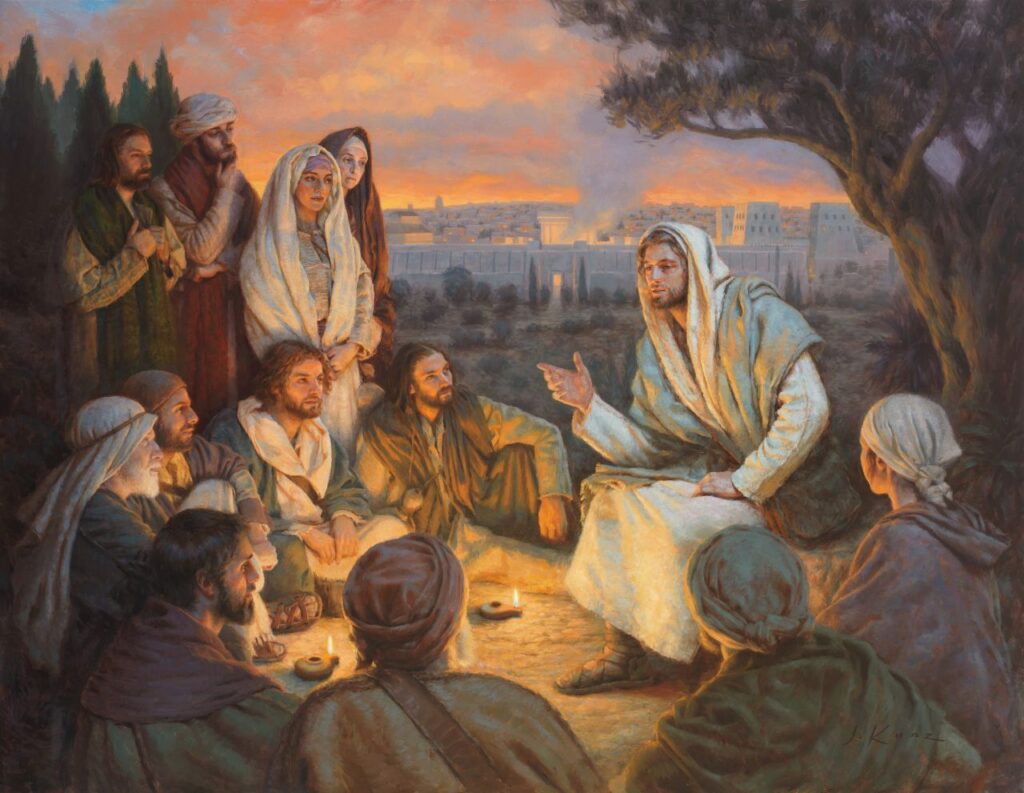
12. To what passages in this week’s reading could you point to support the idea that Jesus may have had a sense of humor?
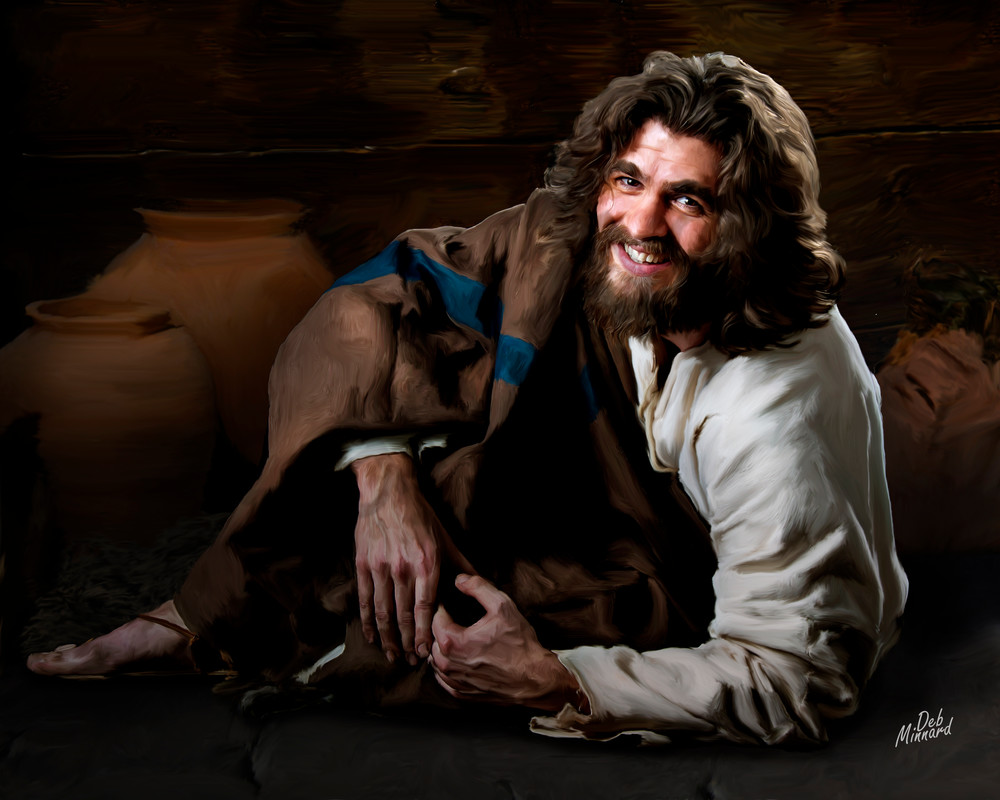
13. What important change did Joseph Smith make to the Parable of the Lost Sheep in his Joseph Smith Translation? What difference does it make?
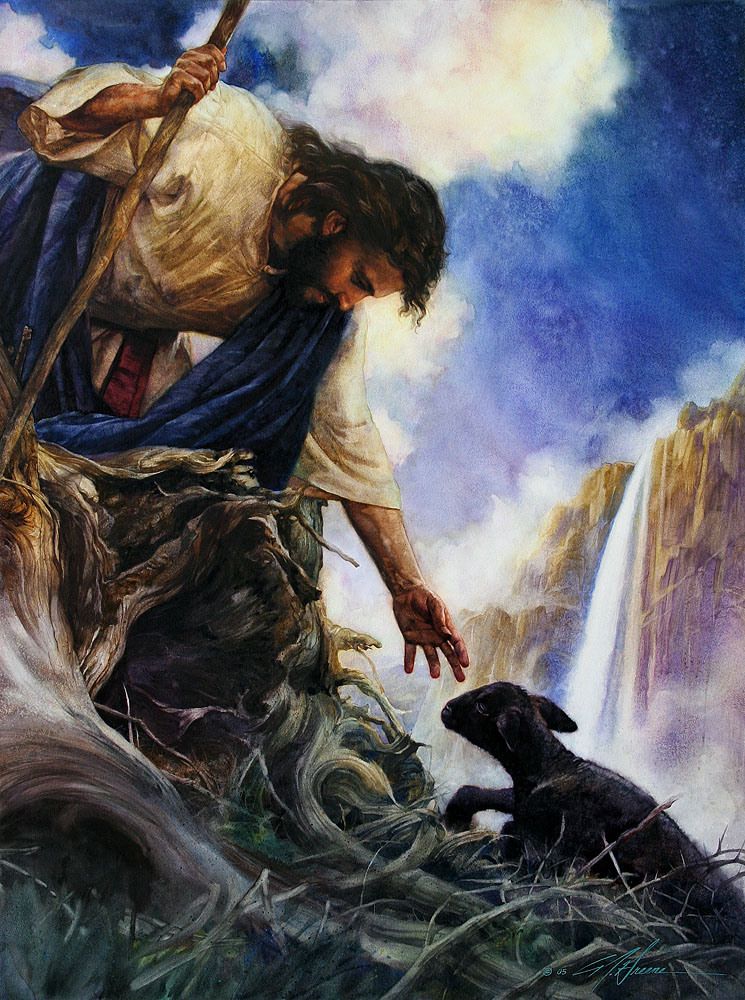
14. What might you say to the older brother in the Parable of the Prodigal Son to answer his seemingly justifiable complaint that his rebellious younger brother was being treated better than he was, who had been faithful throughout the years?
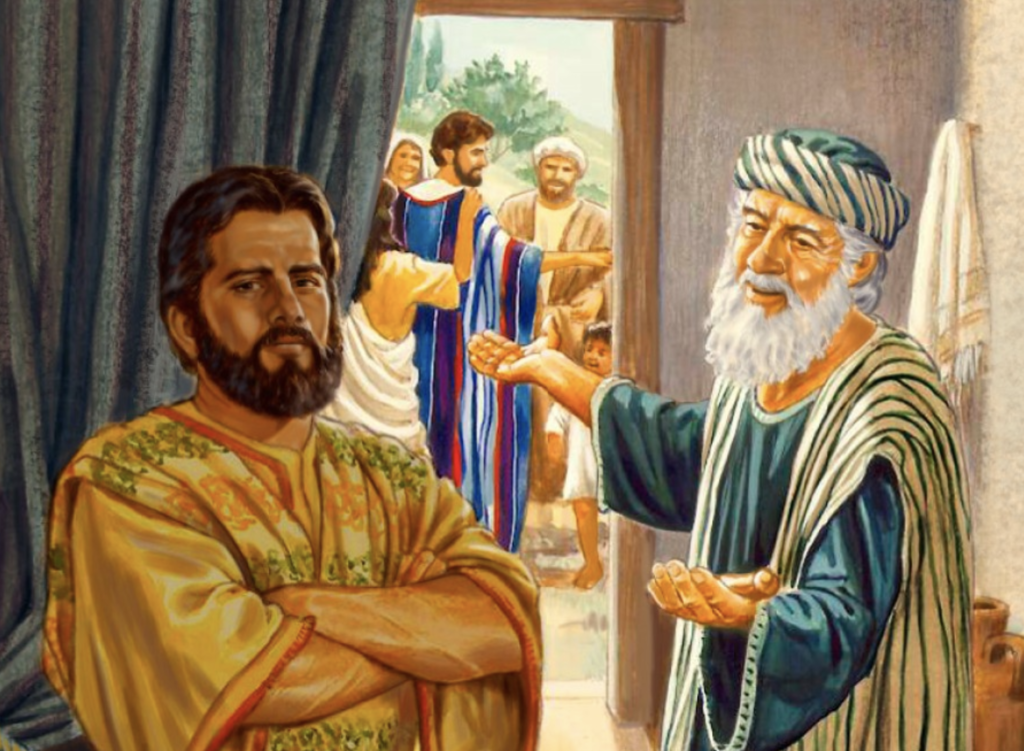
15. Does the Parable of the Great Supper (Luke 14:12-24) mean it’s wrong to turn down a spur of the moment dinner invitation if you already had previous plans? Do we really have to go to every party we’re invited to? Explain.
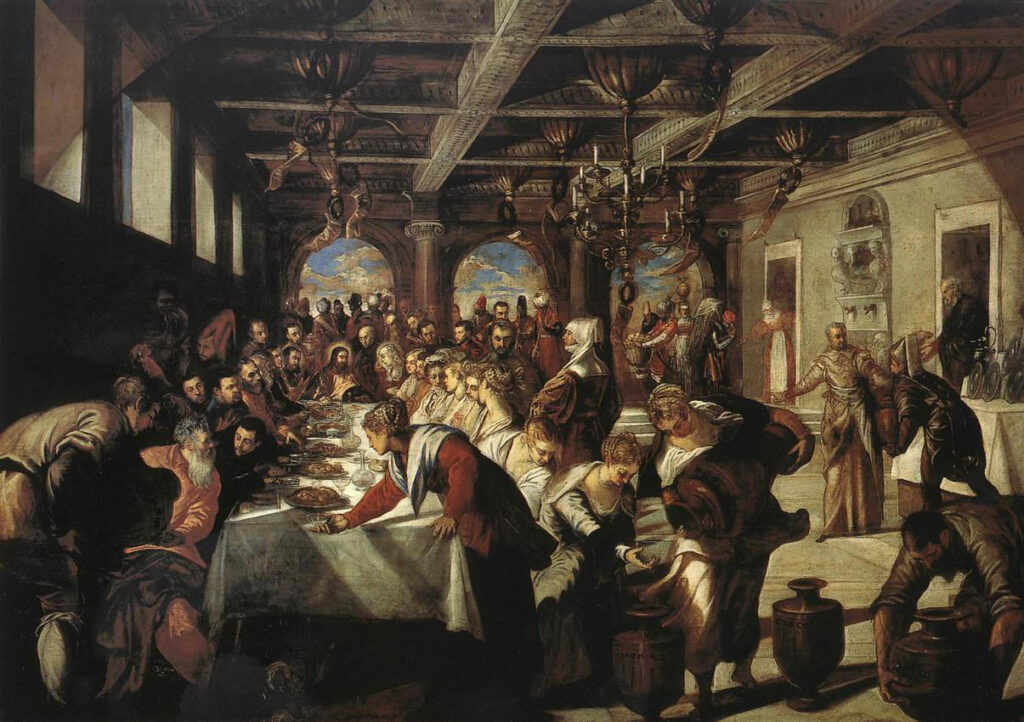
16. Can you reword 14:26 to make it sound like you think Jesus meant it to sound?
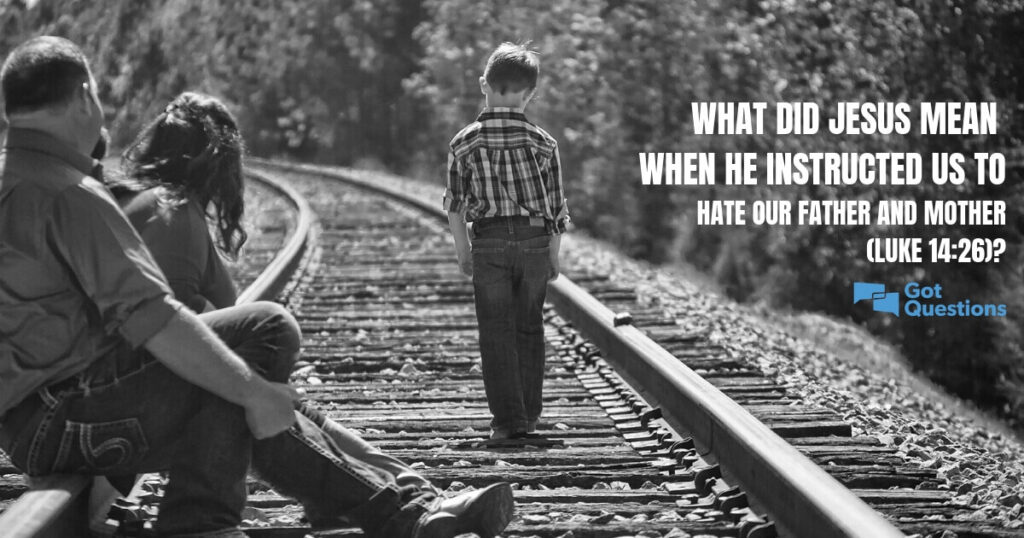
17. How can you explain the Parable of the Unjust Steward, where the conniving and unethical steward ends up being praised by the master whom he has cheated?
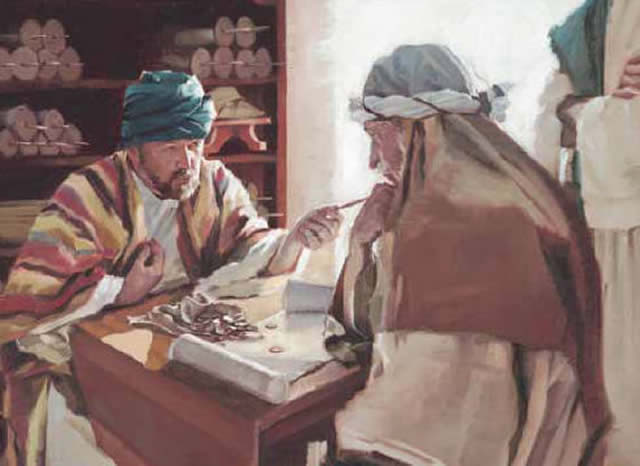
18. What did Jesus mean when He said, “the children of this world are in their generation wiser than the children of light”? Are worldly non-members really smarter than faithful Latter-day Saints? If so, what’s the purpose in being faithful?

19. What does it mean when Jesus says, “Make to yourselves friends of the mammon of unrighteousness”? (Luke 16:9.) Are we to love filthy lucre? Or be friendly with rich people? Why?
20. What examples could you give in support of Jesus’ declaration in Luke 16:15 that “that which is highly esteemed among men is abomination in the sight of God”?
21. What significance do you find in the fact that the ten lepers were not immediately cleansed by Jesus but “as they went” to show themselves to the priests? (Luke 17:14)
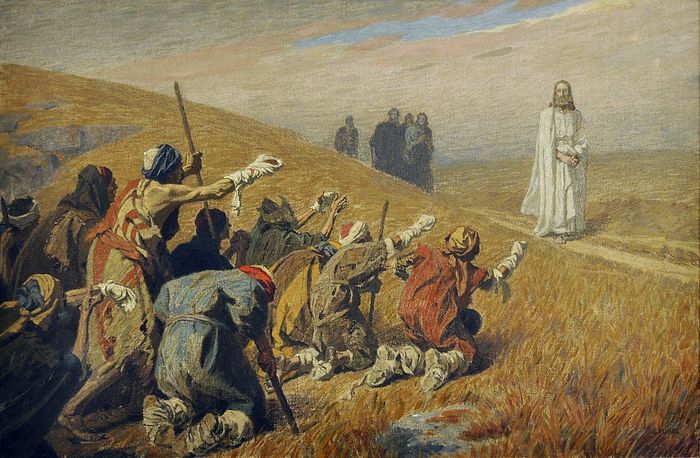
22. What response could you give to someone who said that Jesus’ comment in Luke 17:21 that “the kingdom of God is within you” shows that true religion is a matter of the heart and does not require a formal organization.

Possible Answers to Points to Ponder in Luke 12-17; John 11
- (h) Church members are often less concerned about their eternal welfare than worldly people are about their temporal welfare.
- (b) The British statesman, Benjamin Disraeli, said he’d rather have people ask why there was no statue of him than ask why there was one.
- (d) Jesus said no one should follow him unless he was committed to continue faithful to the end.
- (c) The Gentiles would receive the blessings originally offered to the house of Israel.
- (f) Some members become inactive because of someone else’s neglect.
- (g) Some members become inactive because of willful disobedience and selfishness.
- (e) Some members become inactive without really meaning to, falling prey to worldly distractions.
- (i) Prior to Christ’s atonement there was an impassible gulf between paradise and hell.
- (i) Implies that even if the world had the Book of Mormon plates, they would be unlikely to be convinced by them.
- (j) God doesn’t owe us anything, no matter how obedient we’ve been.
- (a) The Lord requires good works, not merely a profession of faith.
- The Barren Fig Tree (Luke 13:6-9)
- The Chief Seats (Luke 14:7-11)
- The Great Supper (Luke 14:12-24)
- The Uncompleted Tower (Luke 14:28-30) and The Rash King’s Warfare (Luke 14:31-32)
- The Lost Sheep (Luke 15:1-7)
- The Lost Coin (Luke 15:8-10)
- The Prodigal Son (Luke 15:11-32)
- The Unjust Steward (Luke 16:1-13)
- The Rich Man and Lazarus (Luke 16:19-31)
- The Unprofitable Servants (Luke 17:7-10)
12. To what passages in this week’s reading could you point to support the idea that Jesus may have had a sense of humor?
Possibilities include:
- Luke 13:33: “It cannot be that a prophet perish out of Jerusalem” would be quite funny, were it not also so serious.
- Luke 14:18-20, where in the Parable of the Great Supper, Jesus has those invited give perfectly preposterous excuses for why they could not attend the feast to which they had already agreed to go.
- Luke 15:7: Jesus’ reference to “ninety and nine just persons, which need no repentance,” seems tongue in cheek, as there are no such persons, even though the hypocritical Pharisees considered themselves to be just that.
13. What important change did Joseph Smith make to the Parable of the Lost Sheep in his Joseph Smith Translation? What difference does it make?
Rather than leave the ninety and nine to fend for themselves in the wilderness, in the JST the shepherd goes into the wilderness to seek for the one lost sheep, presumably having made proper arrangements for the care of the ninety and nine in his absence. We may well need to temporarily give priority attention to those who have gone astray, but we are not to neglect the welfare of the faithful while we do so.
14. What might you say to the older brother in the Parable of the Prodigal Son to answer his seemingly justifiable complaint that his rebellious younger brother was being treated better than he was, who had been faithful throughout the years?
It is important to note that:
- The younger brother was not reinstated to his position of heir to all his faither had remaining. The father clearly told the older brother, “All that I have is thine.” The father properly rejoiced that his youngest son had at least seen the error of his ways and had returned to the family, even though his future would never be what it could have been.
- Though the younger brother had been guilty of many sins and indiscretions, there is no record of his reaching the level of unwillingness to forgive that the older brother displayed. In D&C 64:9, the Lord indicates that one who refuses to forgive is guilty of a greater sin than the one who sinned against him. Though the parable ends with the older brother still potentially entitled to all his father had remaining, if we apply the principle more generally, we must concede that there is no similar promise made to the unforgiving that they will inherit all that our Eternal Father has, no matter how faithful they may have been in more ritualistic matters.
15. Does the Parable of the Great Supper (Luke 14:12-24) mean it’s wrong to turn down a spur of the moment dinner invitation if you already had previous plans? Do we really have to go to every party we’re invited to? Explain.
This was not a “spur of the moment invitation.” The invitation had been extended much earlier, and those invited had at the time accepted the invitation and promised to attend. It was only on the very day of the gala affair that they made up ridiculous excuses as to why they couldn’t come after all. Clearly, they did not want to be present. Of course, we are not obligated at all to go to “every party we’re invited to.” But when the host is the God of heaven, we had better do everything in our power to be present, if we want the blessings that only He can bestow.
16. Can you reword 14:26 to make it sound like you think Jesus meant it to sound?
I like how the Contemporary English Version renders this verse: “You cannot be my disciple, unless you love me more than you love your father and mother, your wife and children, and your brothers and sisters. You cannot follow me unless you love me more than you love your own life.”
17. How can you explain the Parable of the Unjust Steward, where the conniving and unethical steward ends up being praised by the master whom he has cheated?
Jesus is not at all condoning the unethical behavior of the unjust steward, nor is the master in the parable. But the master is expressing grudging admiration for the resourcefulness of his steward, while technically in his employ, in using his delegated authority to make friends with his master’s debtors by writing off a large portion of their debt.
18. What did Jesus mean when He said, “the children of this world are in their generation wiser than the children of light”? Are worldly non-members really smarter than faithful Latter-day Saints? If so, what’s the purpose in being faithful?
Jesus simply means that even crooks (maybe especially crooks) are more diligent in providing for their economic future than some supposed disciples of the Lord are in ensuring their eternal spiritual future. It’s a reminder to us all that we need to be even more wise and energetic in working for our salvation than our neighbors are in working for their retirement.
19. What does it mean when Jesus says, “Make to yourselves friends of the mammon of unrighteousness”? (Luke 16:9) Are we to love filthy lucre? Or be friendly with rich people? Why?
This somewhat ambiguous King James translation would better be rendered, “Make to yourselves friends by means of the mammon of unrighteousness.” Or, as the New Living Translation renders it: “Here’s the lesson: Use your worldly resources to benefit others and make friends. Then, when your possessions are gone, they will welcome you to an eternal home.” As Paul later makes clear, money itself is not bad. It is the “love of money” that is the “root of all evil.” Rather than use our money just to make our own lives more pleasurable, Jesus is urging us to use it to bless the poor and needy and to help build up the Church and kingdom of God. In that way, we can reserve for ourselves one of those “mansions” in heaven of which Jesus speaks in John 14:2.

20. What examples could you give in support of Jesus’ declaration in Luke 16:15 that “that which is highly esteemed among men is abomination in the sight of God”?
The world today seems to at least tolerate if not “highly esteem” such as the following, all of which God would label as “abominable”:
- Liquor and drugs
- Immodesty
- Sexual pleasure outside of marriage
- Loud and degrading music and movies
- Profanity
- Abortion for the convenience of the mother
- A gay lifestyle, including same sex marriage
- Pursuit of riches and pleasure
- Leisure as an end unto itself
- Unnecessarily lavish homes, clothing, and cars
- Using the Sabbath Day for work, shopping, or commercial recreation
- Etc.
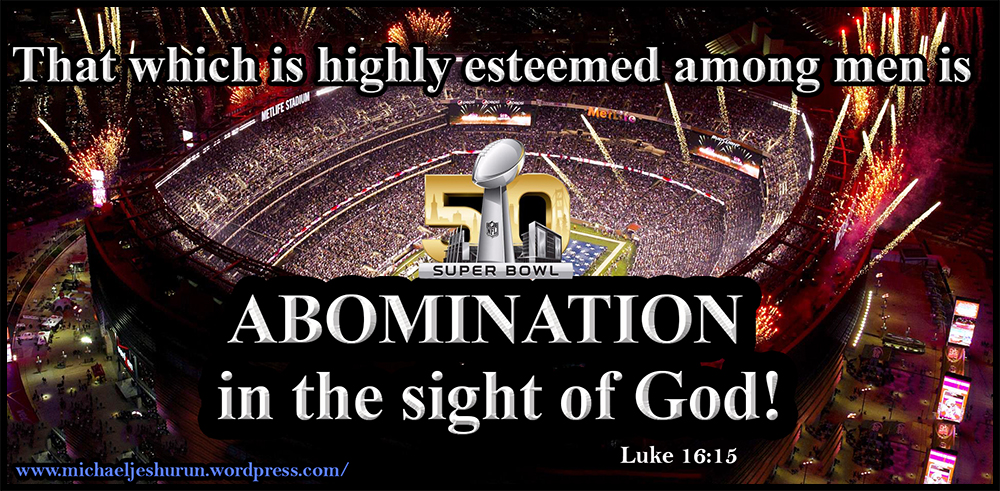
21. What significance do you find in the fact that the ten lepers were not immediately cleansed by Jesus but “as they went” to show themselves to the priests? (Luke 17:14)
As Ether 12:6 reminds us, “Ye receive no witness until after the trial of your faith.” The lepers would likely not have been cleansed at all if they had waited for the cleansing to occur before starting on their way to see the priests. Similarly, the waters of the Jordan were not stopped up until the priests carrying the ark had dipped their toes into the stream.
22. What response could you give to someone who said that Jesus’ comment in Luke 17:21 that “the kingdom of God is within you” shows that true religion is a matter of the heart and does not require a formal organization.
As footnote “c” informs us, “Many translations read “among” because the pronoun “you” is plural here in Greek. There is ample evidence that Jesus did indeed establish an organization, a church, to carry on His work. While His Spirit can and should dwell within each believer, the “kingdom of God” is much more than that. The Joseph Smith Translation confirms that by rendering this phrase as, “The kingdom of God has already come unto you.”
